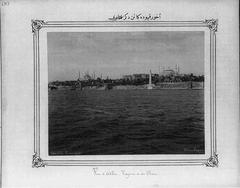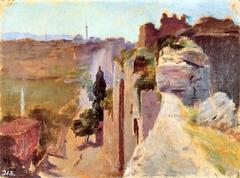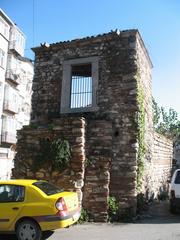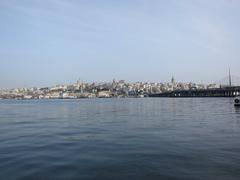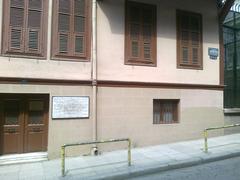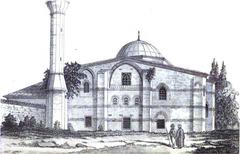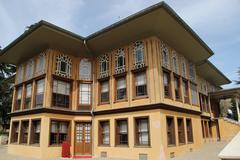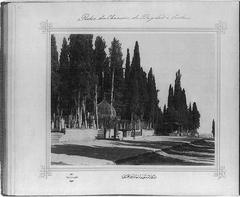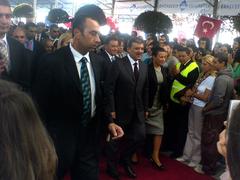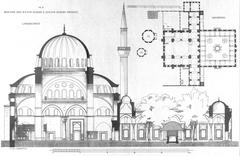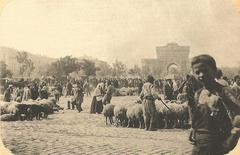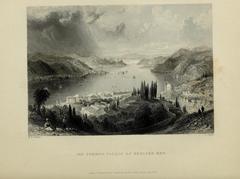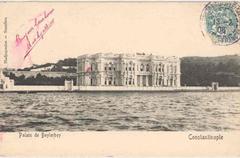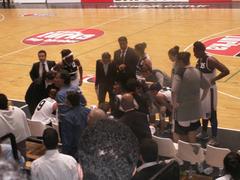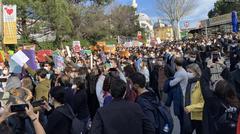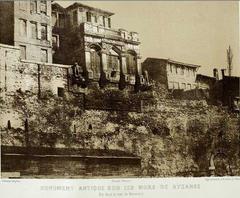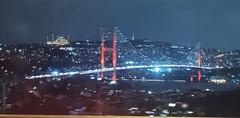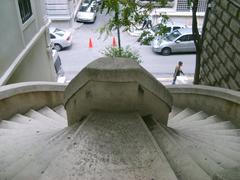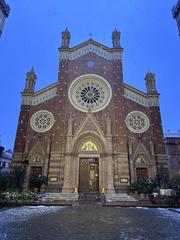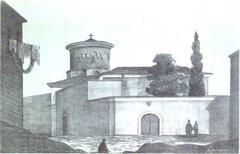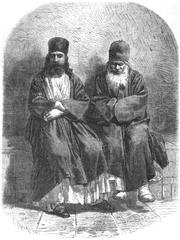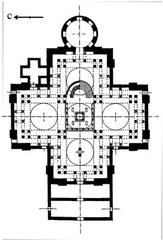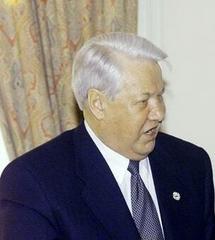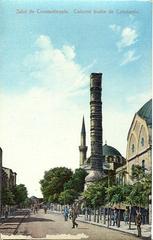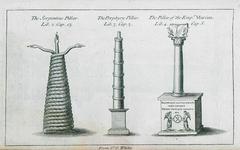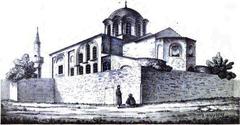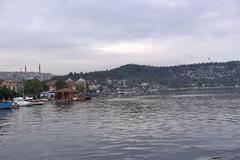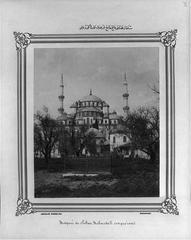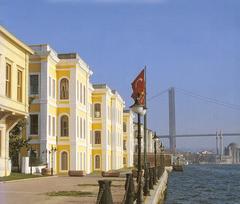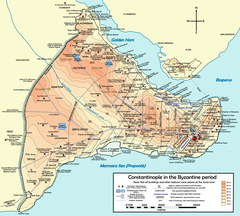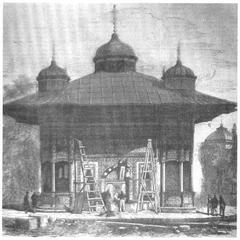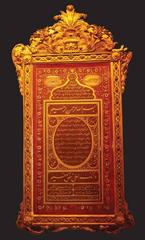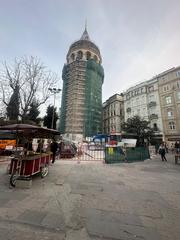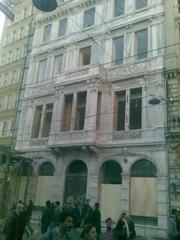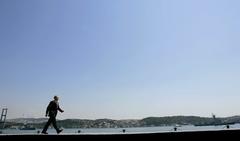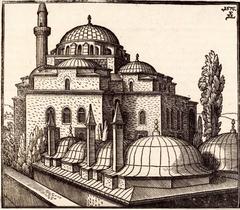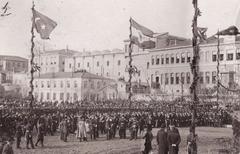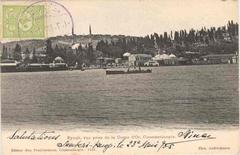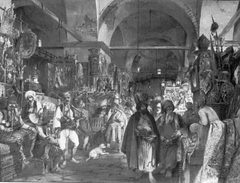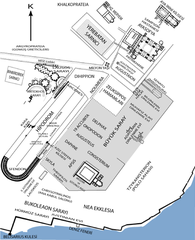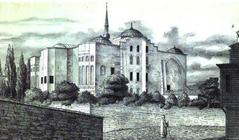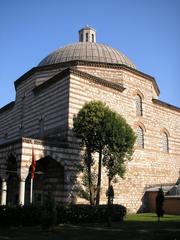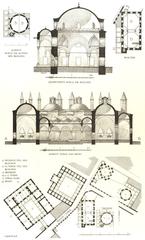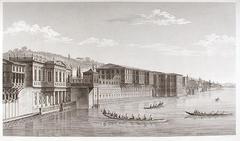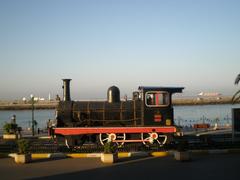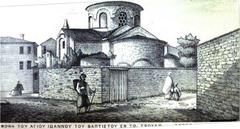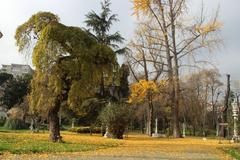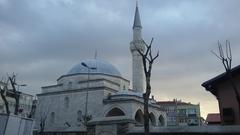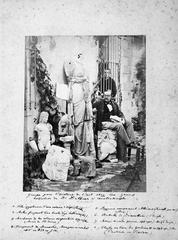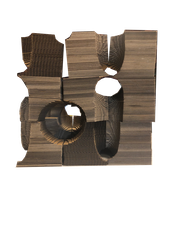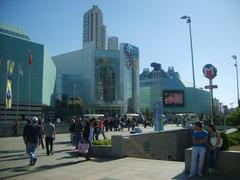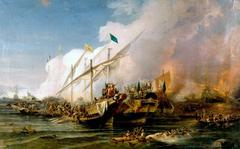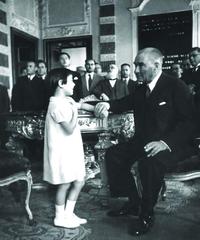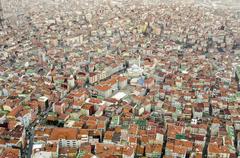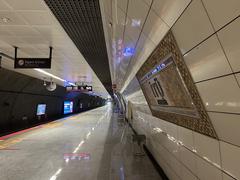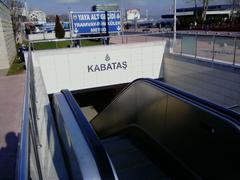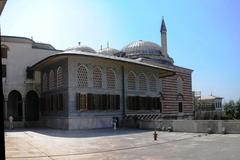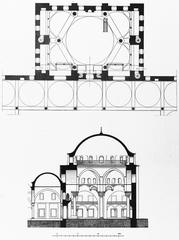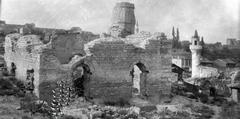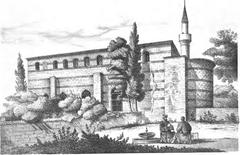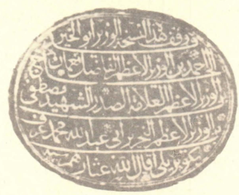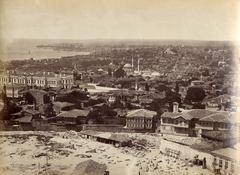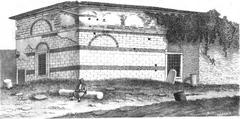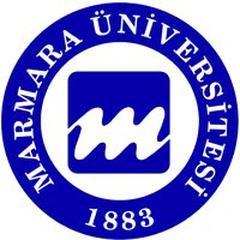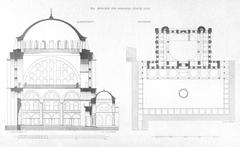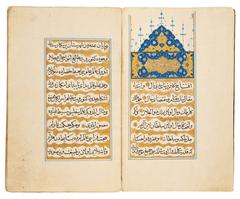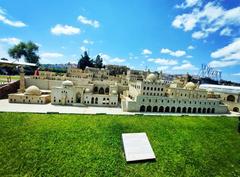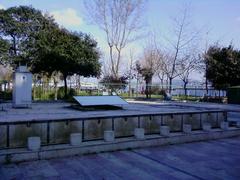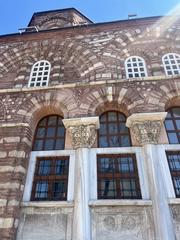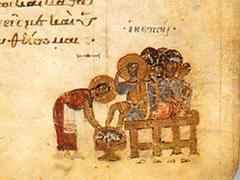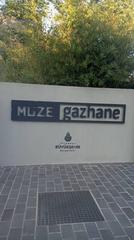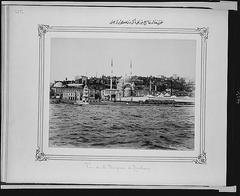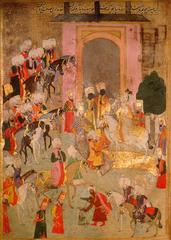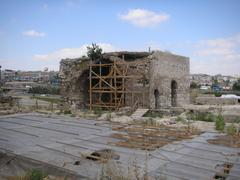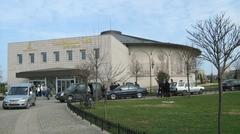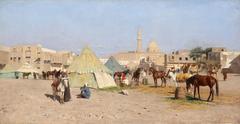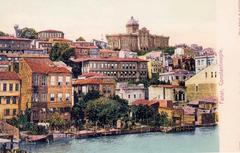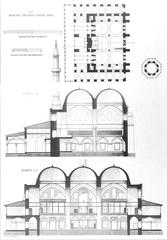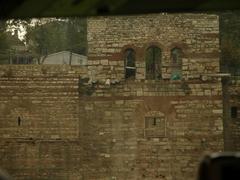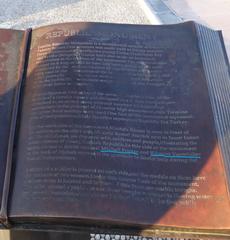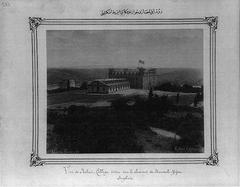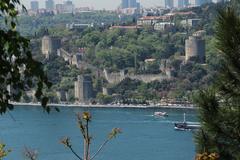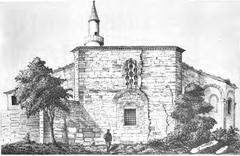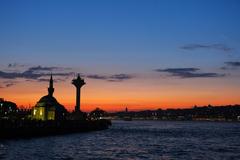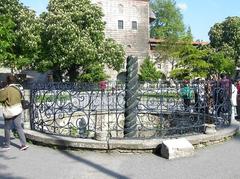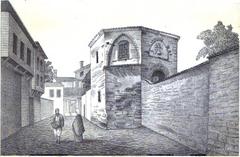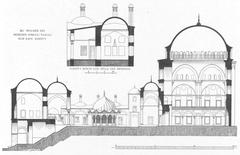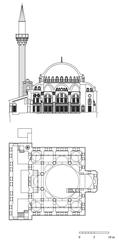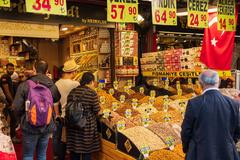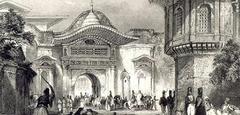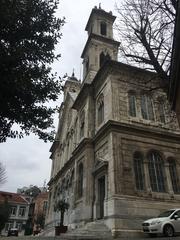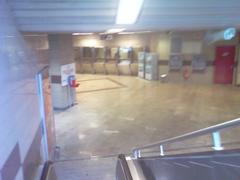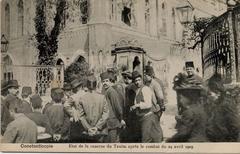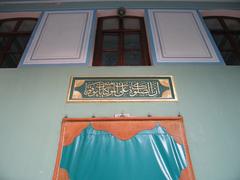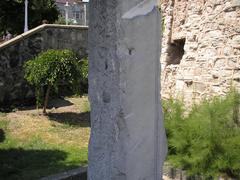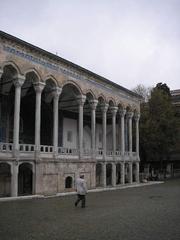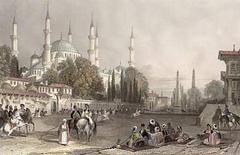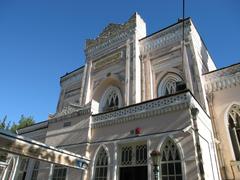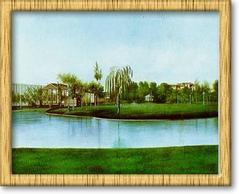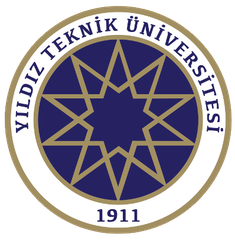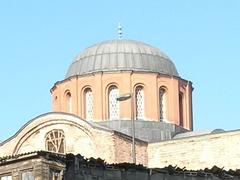Zal Mahmud Pasha Mosque: Visiting Hours, Tickets & Travel Guide in Istanbul
Date: 14/06/2025
Introduction
Nestled in the historic Eyüp district of Istanbul, the Zal Mahmud Pasha Mosque represents a pinnacle of Ottoman architectural achievement and cultural heritage. Commissioned in the late 16th century by Zal Mahmud Pasha—a prominent statesman—and his wife, Şah Sultan, daughter of Sultan Selim II, this mosque complex reflects the rich tradition of imperial patronage during the Ottoman Golden Age. Designed by the legendary chief architect Mimar Sinan, the mosque harmonizes monumental grandeur with an intimate, site-sensitive approach, capitalizing on its hillside setting overlooking the Golden Horn.
Beyond its architectural significance, the complex historically served as a vibrant social hub, integrating religious, educational, and charitable functions that anchored the local community. Today, it remains an active place of worship and a landmark for visitors seeking insight into Istanbul’s layered history. This comprehensive guide covers the mosque’s history, architectural highlights, visitor information, accessibility tips, nearby attractions, and essential etiquette—drawing from authoritative sources (TheOtherTour, Archnet, Culture City Istanbul, Istanbul Clues, Quick Guide Istanbul).
Contents
- Historical Context and Cultural Importance
- Architecture and Design Features
- Practical Visitor Information
- Facilities and Accessibility
- Nearby Attractions
- Frequently Asked Questions (FAQ)
- Tips for Visitors
- Conclusion & Resources
Historical Context and Cultural Importance
Ottoman Golden Age & Patronage
The Zal Mahmud Pasha Mosque was commissioned during the height of the Ottoman Golden Age, a period marked by flourishing arts, architecture, and urban development under Sultan Suleiman the Magnificent and his successors. Mosques were major symbols of imperial and elite patronage, serving both as religious sanctuaries and as centers for education and social welfare.
Zal Mahmud Pasha, of Bosnian origin, distinguished himself as a military commander and statesman. His marriage to Şah Sultan, a royal princess, further elevated his status. Both were instrumental in establishing the mosque complex, with Şah Sultan’s involvement underscoring the significant role of women in Ottoman charitable works (TheOtherTour).
Mimar Sinan’s Vision
By the time he designed the Zal Mahmud Pasha Mosque, Mimar Sinan had already completed masterpieces such as Süleymaniye and Selimiye Mosques. Sinan’s approach prioritized harmony between architecture and environment. The mosque’s hillside location in Eyüp required creative adaptation: terraced courtyards and retaining walls create tranquility while offering stunning views of the Golden Horn (TheOtherTour).
Social Role
The mosque’s külliye (complex) historically incorporated a madrasa, guesthouse, and fountain—serving religious, educational, and charitable functions that fostered community life. This tradition of multifunctional spaces continues, with the complex today hosting cultural arts workshops and community events (Culture City Istanbul).
Architecture and Design Features
Site Layout & Külliye
The mosque is the centerpiece of a külliye, originally including a madrasa, imaret (soup kitchen), hammam (bathhouse), and türbe (mausoleum). While some auxiliary structures no longer survive, the complex’s spatial organization and surviving features exemplify the Ottoman tradition of integrating religious and civic functions (Archnet).
Exterior Features
- Facade & Portico: The mosque entrance is marked by elegant arches and slender marble columns. The single minaret is a visual landmark in Eyüp.
- Dome Structure: The main prayer hall is surmounted by a single dome supported by pendentives and semi-domes, maximizing natural light and creating a serene atmosphere.
Interior Elements
- Prayer Hall: Spacious and luminous, the interior features large windows, a finely decorated mihrab, and a beautifully crafted minbar.
- Decoration: Iznik tiles and intricate calligraphy highlight the artistic excellence of Sinan’s era.
Mausoleum (Türbe)
The couple’s mausoleum, within the mosque precinct, reflects the Ottoman tradition of integrating funerary architecture into religious complexes.
Practical Visitor Information
Visiting Hours & Admission
- Hours: Daily, 8:00 AM – 6:00 PM (may vary on religious holidays)
- Admission: Free; donations welcome for maintenance (Quick Guide Istanbul)
Location & Getting There
- Address: Zalpaşa Street, Eyüp, Istanbul (European side, near the Golden Horn)
- Transport: T5 tram to Feshane station, city buses, taxis, or ride-shares (Quick Guide Istanbul)
Dress Code & Etiquette
- Modest dress required: Men—long trousers; women—headscarf, covered arms and legs.
- Shoes must be removed before entering the prayer hall; bring a bag for your shoes.
- Silence and respectful behavior are expected throughout the mosque and gardens.
- Photography: Allowed, but avoid flash and always request permission before photographing worshippers or ceremonies (Quick Guide Istanbul, Nomadic Niko).
Facilities and Accessibility
- Ablution Fountains: Traditional şadırvan in the courtyard.
- Restrooms: Basic facilities available.
- Courtyard & Gardens: Tranquil spaces for reflection.
- Cultural & Arts Center: Workshops in calligraphy, marbling (ebru), miniature painting, and music (Quick Guide Istanbul).
Accessibility
- Main courtyard and prayer hall: Accessible on one level.
- Some areas (madrasa rooms, tombs): Steps/uneven surfaces; limited wheelchair access.
- Accessible restrooms: Not available; plan accordingly (Quick Guide Istanbul).
Nearby Attractions
- Eyüp Sultan Mosque: Major pilgrimage site within walking distance.
- Feshane International Fair & Congress Center: Venue for cultural events.
- Pierre Loti Café: Panoramic city views.
- Historic Tombs: Mihrişah Sultan, Lala Mustafa Pasha.
- Local Cafés & Restaurants: Traditional Turkish cuisine nearby (Nomadic Niko).
Frequently Asked Questions (FAQ)
Q: What are the Zal Mahmud Pasha Mosque’s visiting hours?
A: Open daily from 8:00 AM to 6:00 PM; hours may vary on holidays.
Q: Is there an entry fee?
A: Admission is free; donations are appreciated.
Q: Are there guided tours?
A: Yes, private guides and small group tours can be arranged; contact the cultural center or local operators.
Q: Is the mosque wheelchair accessible?
A: The main prayer hall is accessible, but some parts have steps/uneven surfaces.
Q: Can I take photos inside?
A: Generally yes, but seek permission before photographing people or ceremonies.
Q: What is the best time to visit?
A: Early morning or late afternoon on weekdays for a peaceful experience.
Tips for Visitors
- Language: Turkish is dominant; some staff speak basic English. A translation app is helpful.
- Footwear: Choose shoes that are easy to remove.
- Weather: Dress for the season; bring sun protection or an umbrella.
- Cultural Events: Check notice boards for workshops or performances (Quick Guide Istanbul).
- Safety: The Eyüp district is safe and welcoming; keep personal belongings secure.
Conclusion & Call to Action
The Zal Mahmud Pasha Mosque is a living testament to Ottoman artistry, spiritual devotion, and social engagement, seamlessly blending history with contemporary cultural life. Whether you are a history enthusiast, spiritual traveler, or curious visitor, this site offers a profound window into Istanbul’s enduring legacy. Plan your visit for an immersive experience—explore its tranquil gardens, participate in cultural workshops, and appreciate the architectural genius of Mimar Sinan.
For real-time updates, guided tour bookings, and exclusive content, download the Audiala app. Follow us on social media for the latest news, travel tips, and cultural highlights across Istanbul.
Sources
- TheOtherTour – Sinan and Ottoman Architecture
- Archnet – Zal Mahmud Pasha Mosque
- Culture City Istanbul – Zal Mahmud Pasha Mosque Complex
- Istanbul Clues – Istanbul’s Best Mosques
- Quick Guide Istanbul – Zal Mahmut Pasha Külliyesi
- Nomadic Niko – Eyüp Mosque Guide
- Istanbul Tips – Guide of Istanbul’s Most Beautiful Mosques
- Discover Country – Zal Mahmud Pasha Mosque

